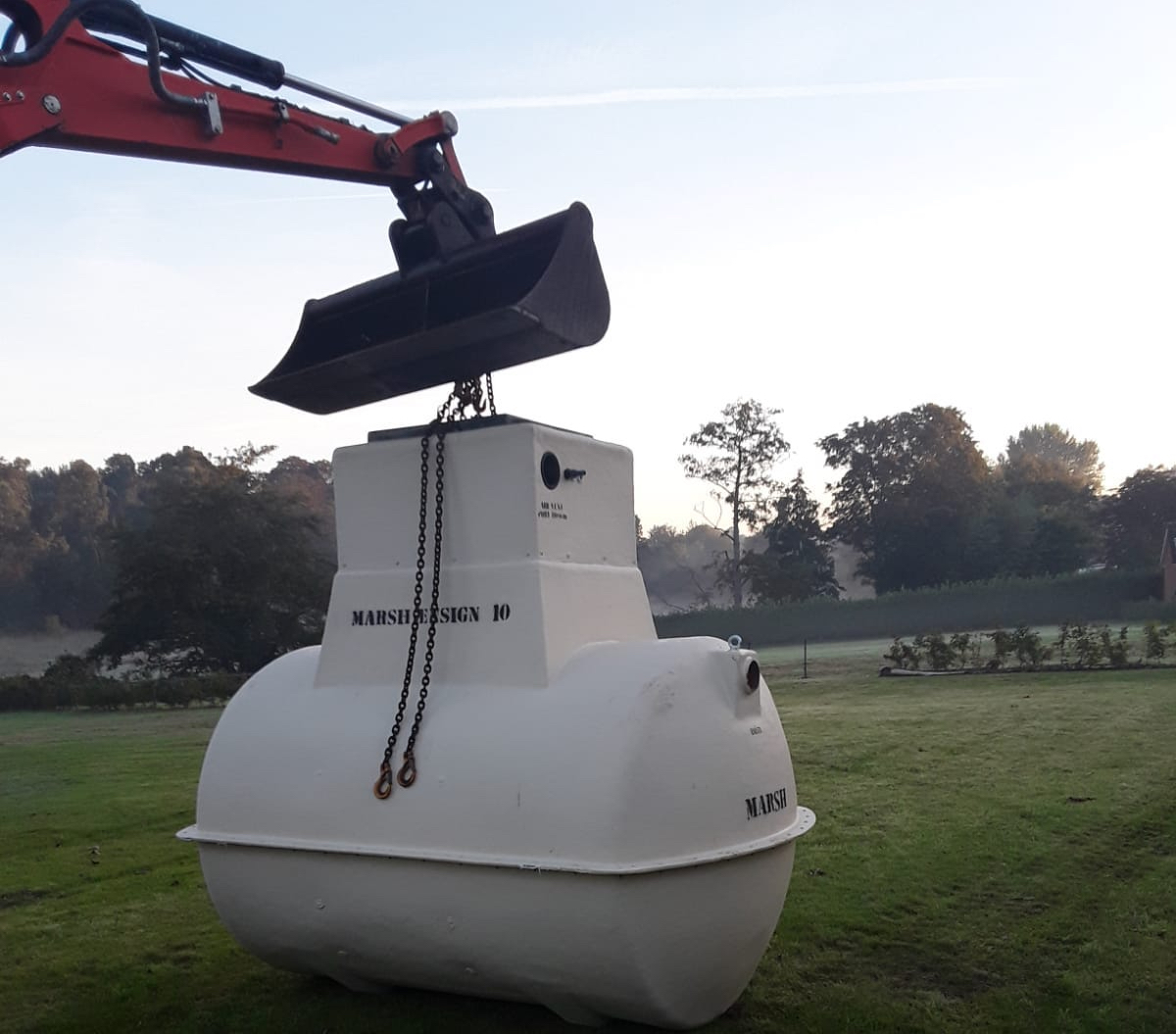
Septic tanks must have been upgraded or replaced by the 1st January – however many septic tank owners are blissfully unaware!
Discussing septic tanks is probably not on the top of most people’s lists! However, its estimated that over 3.5 million people in the UK rely on a septic tank to keep their toilets flushing, and their sinks, showers and baths emptying.
In 2015, regulations were brought in which specified that all septic tanks that discharge to water courses will require either upgrading or replacing with a sewage treatment plant, and that they would have until the 1st January 2020 to comply, however many are completely unaware of this.
How do traditional septic tanks work?
A septic tank is a buried storage facility into which wastewater flows are directed. The traditional method was that, once in the tanks, solids sink to the bottom and form a sludge which over time needs to be removed (without spillage for obvious reasons!). The remaining liquid is allowed to pass out of the initial tank after solids removal, most often then through a secondary tank which further separates solids in solution from the effluent, and on into the surrounding environment (often referred to as a soak away) or directly into water courses. In the past this was able to happen without treating the liquid to the extent now required (and in some cases, not at all!).
Many septic tank installations were designed in a different era, when the only thing that went down the toilet were the ‘two Ps’ (we’ll leave it there) and, down the sink, water and perhaps the odd bit of fairy liquid. Natural biological activity could then take place in the tank as the bacteria in the waste got to work.
Today, consumers use vast amounts of water daily fuelled with highly antibacterial cleaning products to keep our homes and workplaces as pristine and germ-free as possible. These antibacterial systems eliminate almost all bacteria from the septic tank and so the effluent produced is not treated as it once was. This means that the fluid output into a soakaway can be somewhat toxic.
What now?
The Environment Agency’s ‘Septic Tanks General Binding Rules 2015’ state that septic tanks are now required to separate solids and liquids as before, but thereafter liquids are required to be passed into an area designated as a drainage field, where bacteria treat the flows as they soak into the ground. A ‘traditional’ septic tank (i.e. one utilising only ‘passive treatment’) is no longer allowed to discharge into a watercourse.
The drainage field also has to be located so that it is not too close to a watercourse or ground water source to ensure that no cross-contamination can occur through improperly treated sewage entering the water table, as this may endanger the environment.
Where there is potential for any outflow to enter the environment untreated, there is a requirement for the septic tank to feed either into or be replaced by a small local treatment plant which will ‘actively’ clean the flows (i.e. mechanically or through forced aeration) before allowing them to pass into the wider world.
Lack of knowledge
A recent report in trade publication Drain Trader stated that ‘many if not most people using septic tanks have been blissfully unaware of the need to check their systems, alter them or replace them in order to comply with the new regulations’. This is a statement that we at DASA would echo, Tim Dawson at DASA comments:
“Over the last five years we have replaced or repaired numerous septic tanks across the country, ensuring that they now adhere to the new regulations.
“In many cases, our involvement has come about because the septic tank had come to the end of its serviceable life. Many of our customers have been unaware that the regulations had come into force”.
But what happens if you don’t comply?
It has been reported that property owners who violate the regulations will be liable to pay a fine of up to £100,000, so it is important to ensure that you are aware of the changes and can adapt accordingly.
Working alongside our insurance clients we provide a number of ‘off-mains’ solutions on behalf of customers, ensuring that properties are able to abide by the change in environmental law.
We have developed innovative and bespoke solutions and, utilizing our network of experienced engineers, we are able to provide a complete end-to-end resolution for all types of off mains systems.
If you would like further information on our service please contact chris.edwards@dasa.co.uk